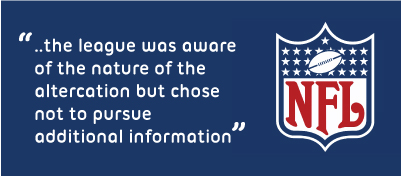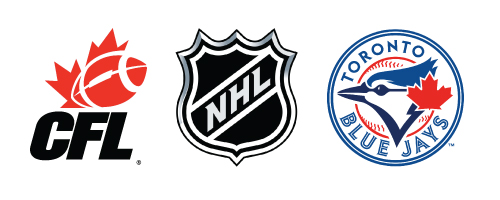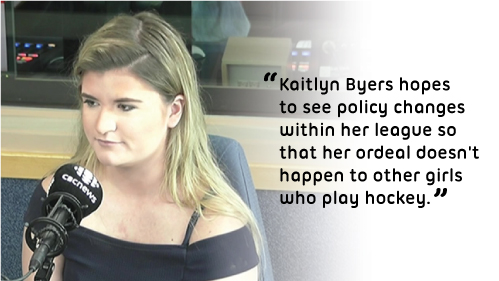Nowhere Near the Finish Line: Sports & Violence Against Women
Ask a child who they idolize and often, they will name a star athlete from a professional soccer, baseball, football, or hockey league. Lately however, it seems like sports teams, brimming with admired talent, are mired in domestic violence controversies. No level of sports is immune to violence and even the culture of amateur sports here in Canada has been infiltrated by attitudes and actions that reflect an acceptance of violence against women. The recent story of Kaitlyn Byers, a promising young hockey player from Spruce Grove, AB illustrates this. That got us thinking: is enough being done to address domestic violence in sporting culture? How do we restore our confidence in the ability of our sports leagues to shape the attitudes and actions of young people in a positive, pro-social way?

Several football and hockey players have made headlines in the past few years for arrests related to publicized domestic violence incidents, with the most notable case involving former National Football League (NFL) Baltimore Ravens athlete Ray Rice. Ray Rice was caught on elevator security camera footage assaulting his wife to the point that she lost consciousness. Understandably, the incident led to heavy scrutiny of the NFL. The New York Times reported that the league was aware of the nature of the altercation but chose not to pursue additional information, even although it had substantial evidence suggesting a serious event had occurred inside the elevator.
Public outrage and the constant churn of stories about athletes implicated in domestic abuse, has led professional leagues such as the NFL to make impressive progress in refining their response to incidents. The CFL developed its own policy on Violence Against Women and implemented training. The NHL has established mandatory sexual assault and domestic violence training for players, while the Toronto Blue Jays became one of our Workplace Champions when it participated in the Make It Our Business Workplace Education Program last year.

The approach to addressing violence against women varies across leagues, in terms of the types of training, policies, and consequences that are instated. This is an important opportunity for leagues and teams to share best practices with each other, and to make genuine improvements in how they handle situations of violence against women when their players are involved. While we can expect a learning curve and an ongoing need to revise and update policies and procedures, we’re confident that the world of sports will be better for these that were kick-started after the Ray Rice media frenzy.
As the recent news involving 18-year-old hockey player Kaitlyn Byers demonstrates the need for better violence against women policies and procedures extends to amateur sports. When Kaitlyn disclosed the physical assault and threats of rape that she received from a hockey player on a competing team, the referees claimed they could not respond as no one else witnessed the incident. At a subsequent match with the same rival team, the abusive player assaulted her once again, this time digging his hockey stick into her ribs and slamming her head into the ice. Kaitlyn then needed five weeks to recover from the injuries. This cautionary tale not only signals the need for better training and formalized violence policies within amateur leagues, but also highlights the need to change the culture in youth sports. Training about violence against women shouldn’t be confined to professional leagues. This incident demonstrates how some teenage players are already engaging in abusive behaviour.

Kaitlyn Byers hopes to see policy changes within her league so that her ordeal doesn't happen to other girls who play hockey. She wants other girls who report violence and harassment to be taken seriously. We stand with Kaitlyn, and believe that there is more work to be done in both at both professional and amateur levels of sport. Professional leagues must continue to build and improve their policies and procedures, while amateur sports need to follow suit in crafting their comprehensive response to domestic and sexual violence involving their players. It is also time to stop treating violence against women when players are involved as a strictly “off-field” issue, and realize that training and policies are needed for game-centric individuals such as referees and coaches.
We can all agree that we want to see an end to our favourite sports leagues being caught up in controversies about domestic and sexual violence. We want children to admire sports heroes unequivocally, without the risk that their favourite player or their favourite team will be tainted by involvement with inappropriate actions or their sports organization’s inadequate response to violence. Strong new policies and practices send the message to professional athletes and the public that violence against women is unacceptable. These developments are on the frontier of positive social change.






